Search
Search Results

Definition
Louis I de Bourbon, Prince of Condé
Louis I de Bourbon (l. 1530-1569) was a descendant of Louis IX of France (r. 1226-1270) and founder of the House of Condé. The Prince of Condé proved his valor as a Huguenot military leader during the first three French Wars of Religion and...

Definition
Michel de L'Hospital
Michel de L'Hospital (also known as L'Hôpital, c. 1505-1573) was a French statesman who served during the reigns of four kings – Francis I, Henry II, Francis II, and Charles IX – as Councillor of Parlement (1537), Chancellor of the Duchesse...
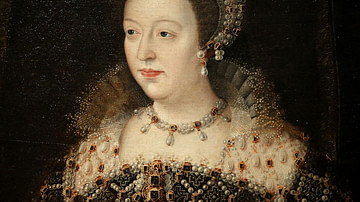
Definition
Catherine de' Medici
Catherine de' Medici (l. 1519-1589) was the queen of France, mother of three kings and two queens and, between 1559 and c. 1576, the most powerful woman in France and, possibly, all of Europe. She was the strength behind the French throne...
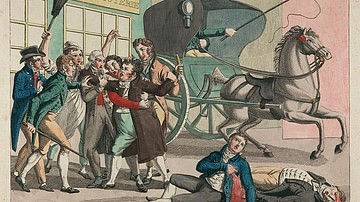
Definition
Cadoudal Affair
The Cadoudal Affair, or the Pichegru Conspiracy, was a failed royalist attempt to kill or kidnap Napoleon Bonaparte (1769-1821), then the First Consul of the French Republic, and restore the House of Bourbon to the French throne. The conspiracy's...
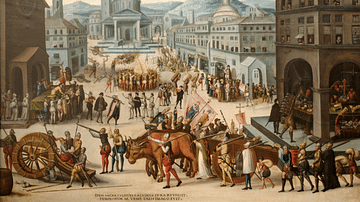
Definition
French Wars of Religion
The French Wars of Religion (1562-1598) were a series of eight conflicts between Protestant and Catholic factions in France lasting 36 years and concluding with the Protestant King Henry IV of France (r. 1589-1610) converting to Catholicism...

Image
Louis I de Bourbon, Prince of Condé
Louis I de Bourbon, Prince of Condé (1530-1569), oil on panel by an unknown French painter, 16th century.
Palace of Versailles.
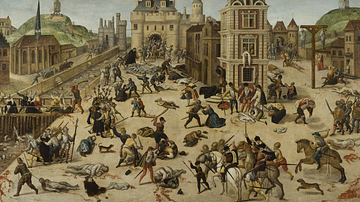
Definition
St. Bartholomew's Day Massacre
The St. Bartholomew's Day Massacre was a widespread slaughter of French Protestants (Huguenots) by Catholics beginning on 24 August 1572 and lasting over two months, resulting in the deaths of between 5,000 and 25,000 people. It began in...
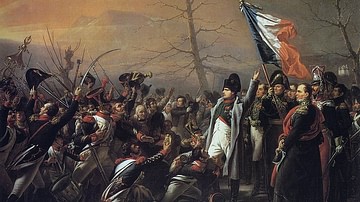
Definition
Hundred Days
The Hundred Days refers to the second reign of French Emperor Napoleon I, who unexpectedly returned from exile to reclaim the French throne. It encompasses Napoleon's triumphant return to Paris on 20 March 1815, his climactic defeat at the...
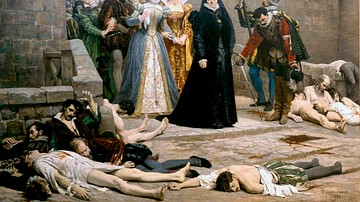
Article
Margaret of Valois' Account of St. Bartholomew's Day Massacre
Margaret of Valois' eyewitness account of St. Bartholomew's Day Massacre is among the most famous and the only written record of the event left by a member of the royal family of France at the time. Her account appears in her memoirs as Letter...
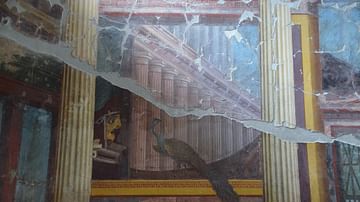
Article
A Visitor's Guide to Oplontis, Stabiae & Boscoreale
More than 2,000 years ago, extremely wealthy Romans lived on the sunny shores of the Bay of Naples at Pompeii and in opulent villas nearby, unconcerned about Mount Vesuvius in the distance. Julius Caesar (100-44 BCE), Augustus (r. 27 BCE...